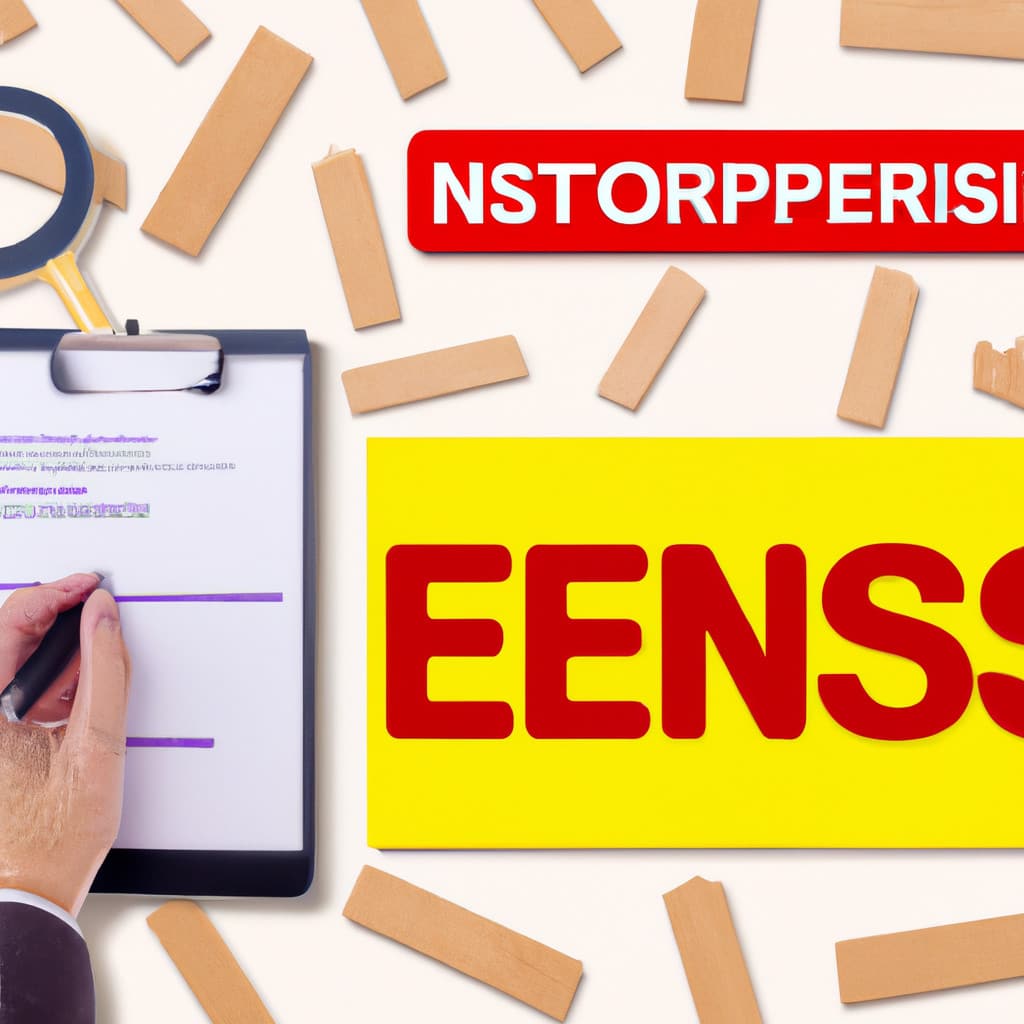7 Key Insights into PowerShell Global Variables: A Comprehensive Analysis
In the world of software engineering, there are various programming languages and tools that engineers work with daily. One such scripting language is PowerShell. It is commonly utilized to perform automated tasks, manipulate data, and interact with various systems. In this article, we will delve into a specific aspect of PowerShell – global variables – and explore how these powerful components can maximize the efficiency of your scripts, enhance readability, and simplify complex tasks. Grab a cup of coffee, and settle in, as we embark on a journey to unravel the mysteries and the full potential of global variables in PowerShell.
1. What is a PowerShell Global Variable?
Before diving deeper into the world of global variables, let’s first establish an understanding of what a global variable is. In PowerShell, variables function as containers that store values or objects. They can be accessed and manipulated throughout your script. Global variables take this concept a step further by making these containers accessible across various scopes, including other scripts, functions, and modules.
Global variables are denoted with the `Global` scope modifier, increasing their visibility and accessibility immensely. For example:
“`powershell
$global:VariableName = “Value”
“`
2. Key Advantages of Utilizing Global Variables
Now that we have a basic understanding of what global variables are, let’s explore their key benefits:
1. *Increased Accessibility:* As mentioned earlier, global variables are accessible not only within the script they are declared but also throughout your PowerShell session. This allows for easy information sharing between functions, modules, and separate scripts.
2. *Enhanced Code Reusability:* By using global variables to store frequently used values, you can efficiently call upon this data across numerous functions, thereby reducing code duplication and promoting reusability.
3. *Ease in Debugging:* Thanks to their higher visibility, global variables can be easily monitored and inspected during debugging sessions.
3. A Cautionary Tale Regarding Global Variables
Despite the advantages of using global variables in certain scenarios, it’s critical to exercise caution and vigilant discretion when employing them. Overusing or misusing global variables can lead to complications, such as:
1. *Code Maintainability Issues:* Since global variables are accessible throughout your entire PowerShell session, they are susceptible to being unintentionally modified or manipulated by other scripts or functions, making it difficult to trace changes and diagnose issues.
2. *Reduced Modularity:* Frequent reliance on global variables can obstruct the composition of modular code, which negatively impacts the understanding and reusability of your code.
4. Creating and Accessing a Global Variable
To create a global variable, prepend the `$global:` scope modifier to the variable name, and assign a value:
“`powershell
$global:AppName = “PowerShellGlobalApp”
“`
You can then access and manipulate the global variable’s value as needed:
“`powershell
Write-Host $global:AppName # Output: PowerShellGlobalApp
$global:AppName = “NewAppName”
Write-Host $global:AppName # Output: NewAppName
“`
5. Working with Predefined Global Variables
In addition to user-defined global variables, PowerShell comes bundled with several predefined global variables that provide vital information and functionalities. A few notable examples include:
1. `$PSVersionTable`: Contains information about the PowerShell version currently in use.
2. `$Error`: Maintains a collection of error objects generated during the current session.
3. `$Host`: Provides access to the PowerShell host application’s properties and methods.
6. Best Practices for Using Global Variables
To ensure the efficient use of global variables while minimizing potential complications, adhere to the following best practices:
1. *Minimize Usage:* Only use global variables when necessary, and always consider function parameters or other scoping mechanisms as alternatives.
2. *Descriptive Naming:* Assign clear and descriptive names to global variables to easily discern their purpose and reduce the risk of accidental changes.
3. *Narrow Scope When Possible:* When a variable’s usage is specific to a single script or module, opt for script or module scope, respectively.
7. Alternatives to Global Variables: Function Parameters and Script Scoping
Lastly, it’s essential to consider alternative solutions when global variables might not be suitable. Two such alternatives include:
1. *Function Parameters:* Utilize function parameters to pass data between functions, promoting modular and maintainable code.
2. *Script Scoping:* For variables that are only needed within a specific script, use the `$script:` scope modifier.
In conclusion, global variables in PowerShell are undeniably powerful tools with numerous benefits. However, they should be employed judiciously and with keen consideration of potential pitfalls. By adhering to best practices and exploring alternatives, you can harness global variables’ full potential to elevate your PowerShell scripts’ efficiency and effectiveness.
What are PowerShell global variables and how do they differ from regular variables in the context of command-line scripting?
In the context of PowerShell command-line scripting, global variables are a specific type of variable that have a scope spanning across the entire script or session, making their content accessible from anywhere within the script or across different scripts running in the same session. This makes them very useful for sharing information between functions, modules or different parts of your code.
On the other hand, regular variables, also known as local variables, have a limited scope and are only accessible to the part of the script or function they were defined in. Once the script or function completes, the local variables are destroyed and their content is lost.
The key difference between global and regular variables lies in their scope and lifetime. Global variables have a longer lifetime and broader scope, while regular variables have a shorter lifetime and limited scope.
To declare a global variable in PowerShell, you can use the $global:variable_name notation. For example:
“`powershell
$global:myGlobalVar = “Hello, this is a global variable”
“`
To declare a regular, or local, variable, simply use the $variable_name notation:
“`powershell
$myLocalVar = “Hello, this is a local variable”
“`
It’s important to note that global variables should be used with caution and only when necessary, as they can lead to unintended consequences and make the script harder to maintain and troubleshoot. Using local variables whenever possible is a best practice in PowerShell scripting.
Can you provide examples of using PowerShell global variables effectively within command-line scripts?
PowerShell global variables are useful for sharing information across functions and scripts in a session. Here are some examples of effectively using PowerShell global variables within command-line scripts:
Example 1: Creating a global variable.
“`powershell
# Create a global variable named ‘username’ with a string value ‘JohnDoe’
$global:username = “JohnDoe”
“`
Example 2: Accessing a global variable from a function.
“`powershell
function Show-Username {
# Access the global variable ‘username’ and display its value
Write-Output “The username is: $global:username”
}
# Call the Show-Username function
Show-Username
“`
Example 3: Modifying a global variable from a function.
“`powershell
function Set-GlobalUsername {
param (
[string]$newUsername
)
# Modify the global variable ‘username’
$global:username = $newUsername
Write-Output “The username is now set to: $global:username”
}
# Call the Set-GlobalUsername function and pass a new value for the global variable
Set-GlobalUsername -newUsername “JaneDoe”
“`
Example 4: Using a global configuration object.
“`powershell
# Create a global configuration object
$global:config = @{
Server = “myserver”
Port = “8080”
MaxRetries = 5
}
function Get-ServerInfo {
# Access the global configuration object properties
Write-Output “Server: $($global:config.Server)”
Write-Output “Port: $($global:config.Port)”
Write-Output “Max retries: $($global:config.MaxRetries)”
}
# Call the Get-ServerInfo function
Get-ServerInfo
“`
In these examples, global variables such as `$global:username` and `$global:config` are effectively used to share information across functions and enable easy modification of global values. Using global variables helps reduce the need for hard-coding values in your PowerShell scripts, making them more flexible and maintainable.
How can I create, access and modify PowerShell global variables in command-line for optimal script performance and maintainability?
In PowerShell command-line, you can create, access, and modify global variables for optimal script performance and maintainability by following these steps:
1. Create a global variable: To create a global variable in PowerShell, use the `$global:` scope modifier followed by the variable name and assign a value to it. For example:
“`powershell
$global:myGlobalVar = “Hello, World!”
“`
2. Access a global variable: To access a global variable from any scope, simply use the `$global:` scope modifier followed by the variable name. For example:
“`powershell
Write-Output $global:myGlobalVar
“`
3. Modify a global variable: To modify the value of a global variable, use the `$global:` scope modifier followed by the variable name and assign the new value. For example:
“`powershell
$global:myGlobalVar = “New Value”
“`
Using global variables in PowerShell command-line can improve script performance by making it easier for different functions and scopes to access shared data. However, it’s essential to maintain their usage properly and avoid overusing them, as they can lead to code that is harder to understand and maintain.
Remember that global variables are accessible across the entire script session, including other scripts that are executed in the same session. Always prefer using local or script-scoped variables when possible and resort to global variables only when necessary.

